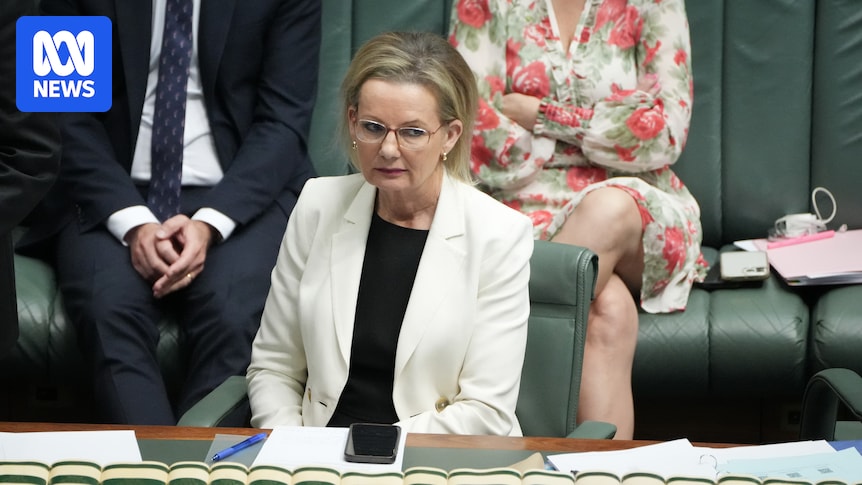
In the latest twist of Australian federal politics, Prime Minister Anthony Albanese finds himself at the center of a transparency controversy, while the Coalition remains fixated on a T-shirt he wore. The shirt, emblazoned with the cover of Joy Division’s “Unknown Pleasures” album, has sparked debate among political circles, with Deputy Opposition Leader Sussan Ley demanding an apology for its perceived insensitivity to Jewish Australians.
The controversy erupted as Albanese returned from the United States, donning the band T-shirt, which quickly became fodder for weekend morning television. Ley criticized the choice, citing the band’s name’s dark origins related to World War II. Despite her insistence, her comments were not universally supported within her party, leading to a split in opinion among Coalition members.
The Coalition’s Internal Struggles
While the T-shirt saga dominated headlines, it overshadowed more pressing issues that the Coalition could have leveraged against the government. Tim Wilson’s attempt to criticize the government and the Greens for blocking an inquiry into the CFMEU was overshadowed by questions about the T-shirt’s impact on his electorate. Similarly, Ted O’Brien’s focus on inflation figures was lost in the noise.
This internal division within the Coalition highlights a broader challenge: the struggle to present a unified front on key issues. Ley’s doubling down on her comments about the T-shirt, despite a lack of support from her colleagues, reflects a party grappling with its identity and priorities.
Transparency Concerns and Political Games
Amidst the T-shirt distraction, significant concerns about government transparency have emerged. The Centre for Public Integrity recently gave the Albanese government low marks on several fronts, including freedom of information laws and parliamentary accountability. This has fueled frustration within the Coalition, who see these issues as opportunities to hold the government accountable.
David Pocock, an independent senator, seized this moment to propose extending Senate Question Time until a report on ‘jobs for mates’ was released. This move was a strategic attempt to force the government into a position of defending its transparency record. However, the government’s response was swift, threatening to strip Coalition MPs of deputy chair committee positions, showcasing the high-stakes nature of these political maneuvers.
“It is extraordinary that the moment I start talking about transparency that games start being played,” remarked a visibly frustrated Jane Hume, highlighting the tension in the Senate.
Albanese’s International Engagements
While domestic political games unfolded, Prime Minister Albanese embarked on a diplomatic tour, attending the ASEAN and APEC summits. His engagements included meetings with leaders from Japan, Malaysia, and China, among others. Notably, Albanese attended a dinner with former US President Donald Trump, where he was praised for his recent achievements in critical mineral and rare earth deals.
This international focus underscores Albanese’s broader strategy of strengthening Australia’s global partnerships. However, his absence from domestic debates on transparency and accountability raises questions about his government’s priorities and responsiveness to internal criticism.
Looking Ahead
As the political landscape continues to evolve, the Albanese government faces mounting pressure to address transparency concerns, while the Coalition grapples with internal divisions and distractions. The coming weeks will be crucial in determining how these dynamics unfold, with potential implications for both parties’ strategies and public perception.
For now, the T-shirt saga serves as a reminder of the unpredictable nature of politics, where seemingly minor issues can overshadow significant policy debates. As both sides navigate these challenges, the focus will inevitably return to the substantive issues that affect the Australian public.







